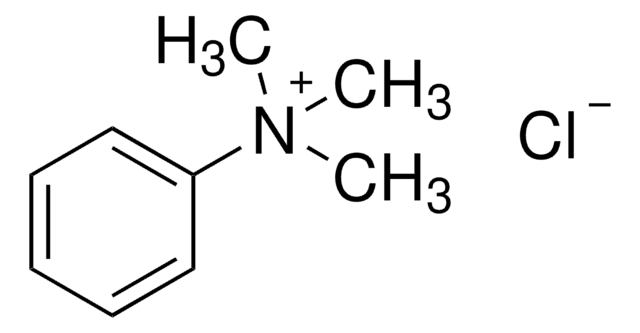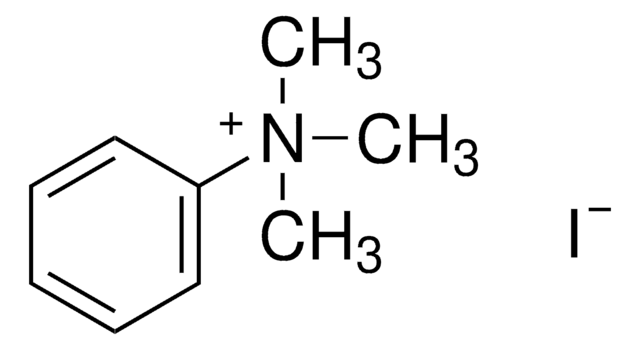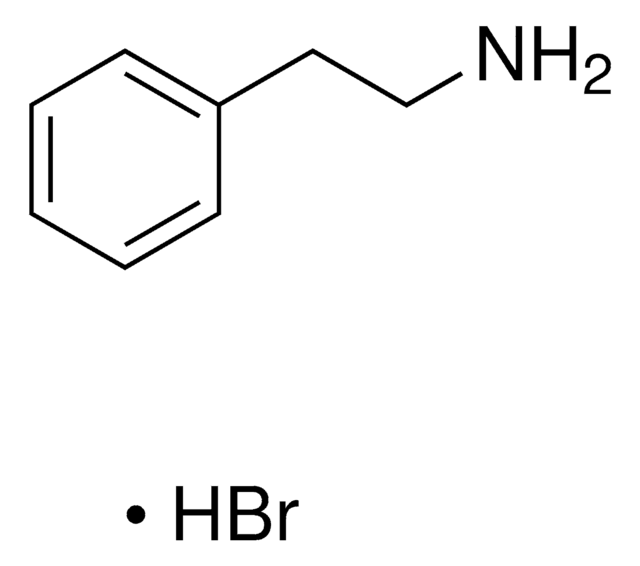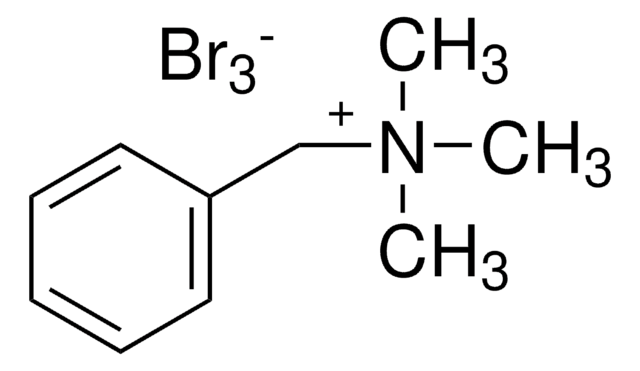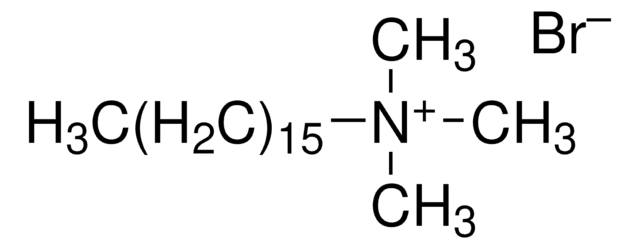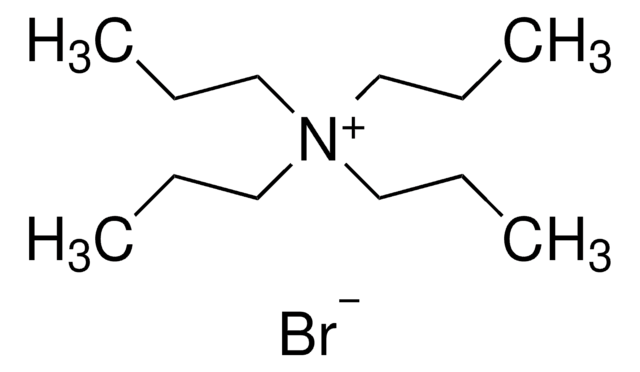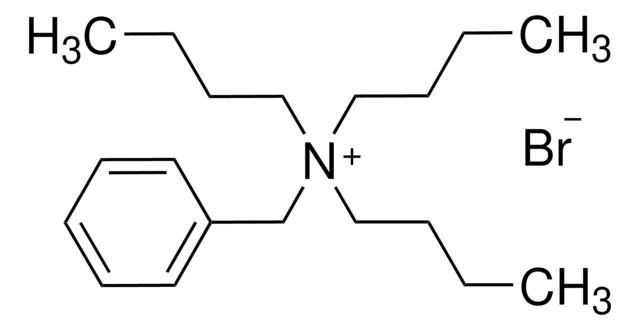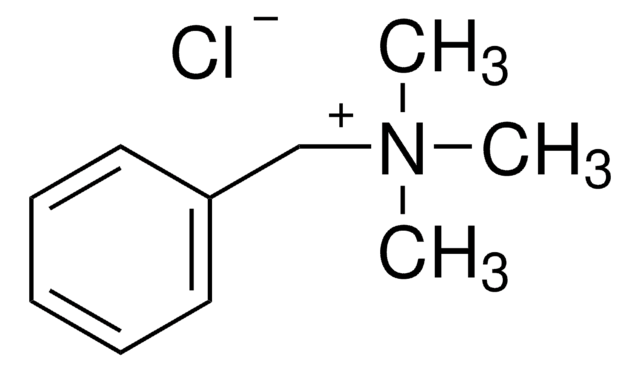135321
Trimethylphenylammonium bromide
98%
Synonym(s):
Phenyltrimethylammonium bromide
Sign Into View Organizational & Contract Pricing
All Photos(2)
About This Item
Linear Formula:
(CH3)3N(Br)C6H5
CAS Number:
Molecular Weight:
216.12
Beilstein:
3917006
EC Number:
MDL number:
UNSPSC Code:
12352116
PubChem Substance ID:
NACRES:
NA.22
Recommended Products
Assay
98%
technique(s)
titration: suitable
mp
215 °C (dec.) (lit.)
SMILES string
[Br-].C[N+](C)(C)c1ccccc1
InChI
1S/C9H14N.BrH/c1-10(2,3)9-7-5-4-6-8-9;/h4-8H,1-3H3;1H/q+1;/p-1
InChI key
GNMJFQWRASXXMS-UHFFFAOYSA-M
Looking for similar products? Visit Product Comparison Guide
Related Categories
Signal Word
Warning
Hazard Statements
Precautionary Statements
Hazard Classifications
Eye Irrit. 2 - Skin Irrit. 2 - STOT SE 3
Target Organs
Respiratory system
Storage Class Code
11 - Combustible Solids
WGK
WGK 3
Flash Point(F)
Not applicable
Flash Point(C)
Not applicable
Personal Protective Equipment
dust mask type N95 (US), Eyeshields, Gloves
Choose from one of the most recent versions:
Already Own This Product?
Find documentation for the products that you have recently purchased in the Document Library.
Customers Also Viewed
R W Gullick et al.
Environmental science & technology, 35(7), 1523-1530 (2001-05-12)
A natural shale and four synthetic organoclays were compared as potential sorbent additives to containment barriers at hazardous waste sites. Trimethylphenyl ammonium bentonite (TMPA-bent) was shown in batch experiments to have the greatest sorption capacities for 1,2,4-trichlorobenzene, trichloroethylene, and methyl
Jeffrey T Auletta et al.
Chemico-biological interactions, 187(1-3), 135-141 (2010-05-25)
Acetylcholinesterase (AChE) contains a narrow and deep active site gorge with two sites of ligand binding, an acylation site (or A-site) at the base of the gorge and a peripheral site (or P-site) near the gorge entrance. The P-site contributes
Anthony A Mikulec et al.
Otology & neurotology : official publication of the American Otological Society, American Neurotology Society [and] European Academy of Otology and Neurotology, 30(2), 131-138 (2009-01-31)
Drugs applied to the middle ear enter perilymph through the bony otic capsule. Drugs applied intratympanically in humans are thought to enter the cochlea primarily through the round window membrane (RWM). Local drug treatments of the ear are commonly evaluated
Alec N Salt et al.
Journal of the Association for Research in Otolaryngology : JARO, 13(6), 771-783 (2012-09-13)
Perilymph pharmacokinetics was investigated by a novel approach, in which solutions containing drug or marker were injected from a pipette sealed into the perilymphatic space of the lateral semi-circular canal (LSCC). The cochlear aqueduct provides the outlet for fluid flow
Alec N Salt et al.
Hearing research, 232(1-2), 78-86 (2007-07-31)
Local delivery of drugs to the inner ear is increasingly being used in both clinical and experimental studies. Although direct injection of drugs into perilymph appears to be the most promising way of administering drugs quantitatively, no studies have yet
Our team of scientists has experience in all areas of research including Life Science, Material Science, Chemical Synthesis, Chromatography, Analytical and many others.
Contact Technical Service